By Shantanu Kaushik
Cloud-native architecture is highly beneficial for accelerated applications that improve the common business value for enterprises. It changed how traditional systems worked and how the architecture delivered a solution. Alibaba Cloud presented a wide cloud-native solution using a product lineup that has delivered extensive productivity for multiple enterprises. These products include containers, Kubernetes, microservices, Elastic Compute Service (ECS), and other agile and elastic services from a long lineup of storage, networking, and security solutions. In Part 5of this article series, we will discuss different technological products that deliver an effective cloud-native solution.
The concept and adoption of containers became popular thanks to Docker. Containers are software units that store an application and all its dependencies. These standardized software units help applications run efficiently and reliably irrespective of the computing environment.
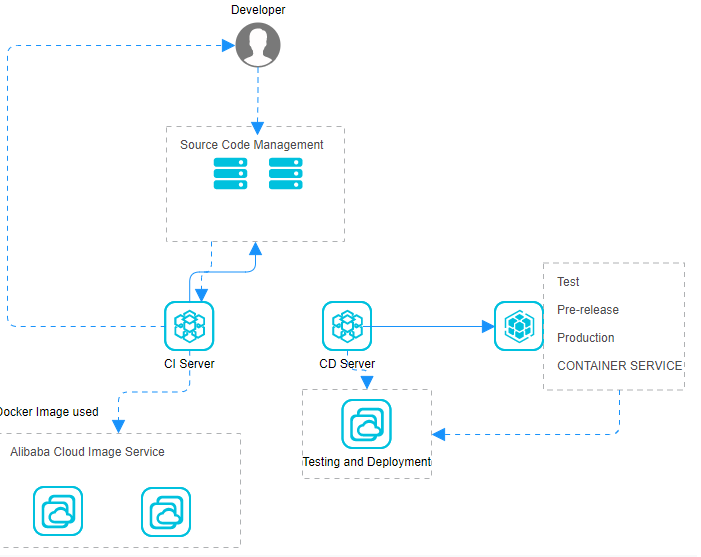
Container Service on Alibaba Cloud
The Docker engine utilizes an operating system kernel to work with virtualized application containers. The Docker engine is lightweight and offers quick setup to production scenarios. Alibaba Cloud offers extensive support to Docker for containerization with a highly elastic approach to deploy multiple applications.
Docker also offers self-built images to package your application, enabling you to decouple your application from the runtime environment and increase the solution consistency. Docker enabled a flexible and open application development method using containers and helped enterprises run automated O&M scenarios.
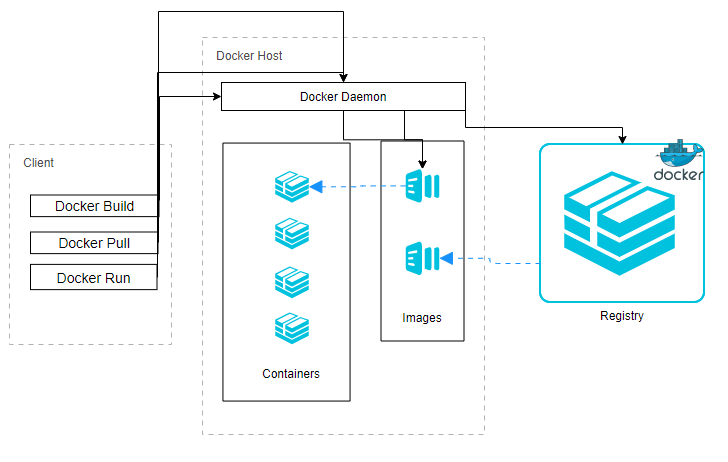
Docker on Alibaba Cloud
After Docker standardized the image-based method of releasing applications, Kubernetes made its mark with container orchestration. Alibaba Cloud adopted Kubernetes quickly as its primary solution for containerization since the openness of the solution and the scalability offered were extensive and consistent.
Today, Kubernetes is leading the enterprise deployment of containers and used for distributed resources scheduling. Kubernetes also supports automated operations and maintenance (O&M), making it the most popular choice as a containerization solution with cloud-native architecture and SDLC solutions like DevOps.
Alibaba Cloud offers the Container Service for Kubernetes (ACK) as an infrastructure service with superb portability scenarios for applications to run in different environments. Kubernetes can design cloud architectures based on business demands. You can utilize Kubernetes with multi-cloud or hybrid cloud setups.
Let’s take a look at the architectural flow of Kubernetes on Alibaba Cloud on the chart below:
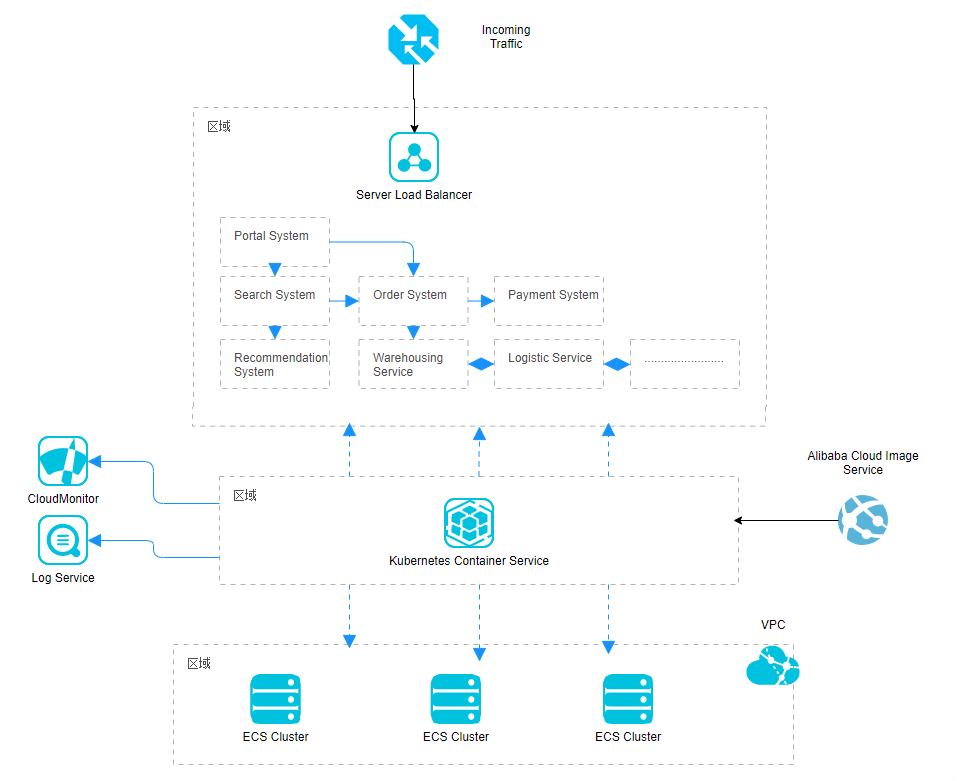
Kubernetes has spread its branches to form a superlayer of solutions, such as Knative based on the serverless framework and Kubeflow for machine learning. The container ecosystem based on Kubernetes provides a completely standardized solution that enables enterprises to build suited solutions.
As we already pointed out, Kubernetes can be referred to as a standard for container orchestration and is used for deployment, scaling, and managing containerized applications.
1. Portability
Containerization is a standard practice for application delivery and packaging. As containers pack all the dependencies and application code within a package, they offer extensive portability and independence to run in any environment. Kubernetes can isolate services and APIs, allowing for easy containerized application migration without any infrastructure dependency.
2. Agility and Elasticity
Containers improve enterprise IT architecture agility, help with rapid business growth, and increase the overall solution efficiency. Containers can help enterprises have better resource utilization depending on traffic bursts. Situations like the sudden traffic spikes in online education systems during the COVID-19 pandemic can render a system unstable. Alibaba Cloud Containerization technology has helped multiple enterprises continue operating and adjust to the sudden spikes in resource demands.
3. Resource Scheduling and Auto Scaling
Kubernetes provides containerization by scheduling resources based on application demands. Preset nodes containing different resource values can be implemented. Alibaba Cloud Auto Scaling monitors the loads to help automatically scale the system up or down.
4. Application Management
Alibaba Cloud Container Service for Kubernetes (ACK) enables automatic release cycles or rollback for containerized applications. Alibaba Cloud ACK can manage the configurations of these containerized applications.
5. Service Recovery and Load Balancing
Alibaba Cloud ACK monitors all hosts in different clusters. This enables a close check on the health of any host or operating system. If an issue is detected with any node, the applications are automatically migrated to maintain availability. This Kubernetes auto recovery feature enables simplicity with O&M operations.
Alibaba Cloud Server Load Balancer (SLB) takes care of the traffic load scenarios by calling in the Auto Scaling service to enable elastic resources orchestration. Different application services can be discovered using Kubernetes, and communication can be enabled between these containerized applications using DNS.
Kubernetes runs with an API server, etcd, a scheduler, and a controller. Kubernetes lets you focus on applications with declarative APIs to assist with various workloads, such as deployments.
Let’s compare the traditional deployment methodology with containerized deployment in a virtualized deployment scenario:
With traditional deployments, the application and all its instances run using an operating system that directly utilizes the underlying hardware. Please take a look at the chart below:
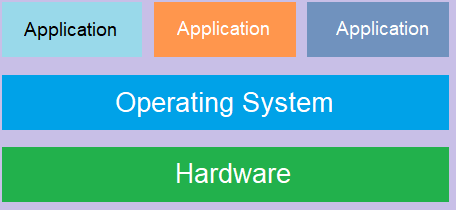
With Virtualized deployments, a hypervisor is used over the operating system to extend the hardware capabilities of the resource and define multiple virtual machines to create additional virtual environments. These virtual environments can be used to run applications based on supported technologies with multiple application instances. Please take a look at the chart below:
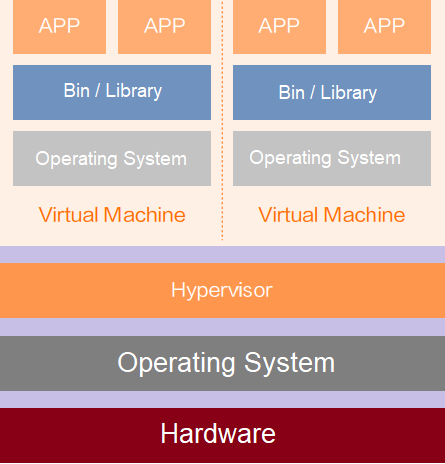
With the containerized deployment scenario, the application and all its dependencies are packaged to create a software unit that is not dependent on the underlying environment to run.
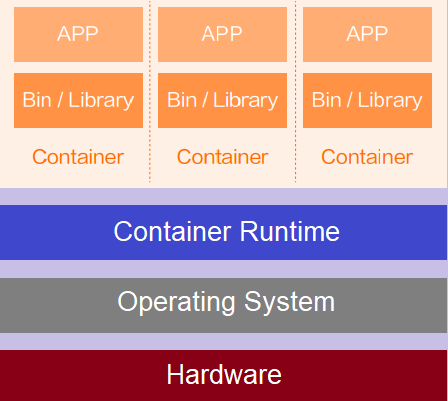
With the cloud-native architecture, containers enable elastic, scalable, and highly reliable services for enterprises to achieve consistency with their solutions. Alibaba Cloud Container services and the cloud-native architecture help create simple solutions easily.
Cloud-Native and Application Management with Ease – Part 4: Architecture Models

2,593 posts | 793 followers
FollowAlibaba Clouder - February 25, 2021
Alibaba Clouder - February 24, 2021
Alibaba Clouder - February 25, 2021
Alibaba Clouder - March 1, 2021
Alibaba Clouder - March 1, 2021
Alibaba Clouder - February 22, 2021

2,593 posts | 793 followers
Follow Retail Solution
Retail Solution
Alibaba Cloud enables digital retail transformation to fuel growth and realize an omnichannel customer experience throughout the consumer journey.
Learn More Microservices Engine (MSE)
Microservices Engine (MSE)
MSE provides a fully managed registration and configuration center, and gateway and microservices governance capabilities.
Learn More DevOps Solution
DevOps Solution
Accelerate software development and delivery by integrating DevOps with the cloud
Learn More Alibaba Cloud Flow
Alibaba Cloud Flow
An enterprise-level continuous delivery tool.
Learn MoreMore Posts by Alibaba Clouder